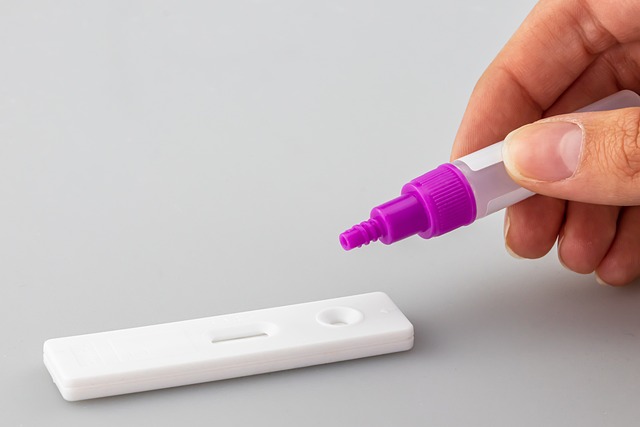Discover Sperm Donation – Your Contribution to Parenthood
Sperm donation provides a life-changing opportunity for individuals and couples seeking to start a family. This carefully regulated process ensures safety, confidentiality, and ethical responsibility, making it a trusted method for assisted reproduction. Many people turn to sperm donation as a way to bring joy to those facing fertility challenges. Understanding how the process works can help potential donors and recipients navigate this important decision with confidence.

What Is Sperm Donation?
Sperm donation is a procedure in which a man voluntarily donates his sperm to help individuals or couples who cannot conceive naturally to achieve pregnancy. This reproductive assistance method supports various family structures, including heterosexual couples facing male infertility issues, single women, and same-sex female couples who wish to have children. The donated sperm is typically processed and screened at a fertility clinic or sperm bank before being used for artificial insemination or in vitro fertilization (IVF) procedures.
Unlike informal arrangements, official sperm donation through accredited clinics ensures proper medical screening, legal protection, and confidentiality for all parties involved. Modern sperm donation practices have evolved significantly, with many countries developing comprehensive regulations that address genetic testing, donor anonymity options, and the rights of children born through donation to access information about their biological origins when they reach adulthood.
The Donation Process
The sperm donation process follows several carefully managed steps designed to ensure safety and quality. Initially, potential donors undergo an extensive pre-screening interview covering their medical history, lifestyle, and family background. This preliminary assessment helps identify candidates who meet basic requirements before proceeding to more comprehensive evaluations.
Qualified candidates then complete a thorough medical screening that includes testing for infectious diseases, genetic disorders, and overall sperm quality analysis. Donors typically provide multiple samples over several visits to establish consistency in sperm count and quality. Once approved, donors commit to a regular donation schedule, usually visiting the clinic once or twice weekly for several months. Each donation involves collecting a sample in a private room at the clinic.
After collection, laboratory specialists process the sample through washing and freezing techniques that preserve sperm viability. The frozen samples remain quarantined for a minimum period (often six months) while additional health tests are performed before the sperm becomes available for use in fertility treatments. This careful processing ensures that only the healthiest samples reach the recipient families.
Who Can Become a Donor?
Sperm banks and fertility clinics maintain strict criteria for donor eligibility, focusing on health factors that influence reproductive potential. Generally, donors must be between 18 to 39 years old, though the preferred age range is often 21 to 35, when sperm quality is typically at its peak. Donors must have excellent physical and mental health with no significant hereditary conditions or genetic disorders in their family history.
Educational requirements vary among facilities, with many prestigious sperm banks preferring donors with college education or advanced degrees. Height requirements also exist at some facilities, with preferences for donors above average height. Lifestyle factors play a crucial role—candidates must demonstrate responsible health behaviors including non-smoking status, limited alcohol consumption, and no recreational drug use.
Most surprising to potential donors is the acceptance rate—typically less than 5% of applicants meet all medical, genetic, and quality standards. This stringent selection process ensures that donation programs maintain high standards for the families who will ultimately use these genetic materials to create their children.
How Much Can You Earn from Sperm Donation?
Compensation for sperm donation varies significantly based on location, the specific sperm bank, and the donor’s personal characteristics. In the United States, donors typically receive between $50 and $125 per accepted sample. Since most donation programs require regular donations (1-3 times weekly) over a 6-12 month commitment period, consistent donors can earn approximately $1,000 to $1,500 per month.
Premium donor programs may offer higher compensation—sometimes up to $200 per donation—for donors with exceptional characteristics such as advanced educational degrees, rare physical attributes, or unique ethnic backgrounds that are underrepresented in donor catalogs. Some facilities also provide bonus structures for long-term commitments, high-quality samples, or when donors agree to identity disclosure programs.
| Sperm Bank | Base Compensation | Additional Benefits | Commitment Length |
|---|---|---|---|
| California Cryobank | $100-$125 per donation | Health screening, genetic testing | 6-12 months |
| Fairfax Cryobank | $50-$100 per donation | Complimentary health testing | 6-9 months |
| Seattle Sperm Bank | $70-$100 per donation | Student/military bonuses | 6-12 months |
| Xytex Cryo International | $100-$150 per donation | Long-term donor bonuses | 6-12 months |
| New England Cryogenic Center | $75-$100 per donation | Referral bonuses | 6 months minimum |
Prices, rates, or cost estimates mentioned in this article are based on the latest available information but may change over time. Independent research is advised before making financial decisions.
It’s worth noting that compensation should be viewed as reimbursement for the donor’s time and inconvenience rather than “selling” genetic material, as many countries have laws explicitly prohibiting the direct sale of human tissues. Additionally, successful donors must understand that this is a significant commitment requiring reliable attendance at appointments and adherence to specific lifestyle guidelines between donations.
Legal and Ethical Considerations in Sperm Donation
The legal framework surrounding sperm donation varies dramatically worldwide. In some countries, donors remain completely anonymous, while others have embraced “identity-release” programs where children can access donor information upon reaching adulthood. The United States offers both anonymous and identity-release options depending on the facility and donor preference, though the trend is moving toward greater transparency.
Donors must carefully consider the psychological implications of their decision. While anonymous donors traditionally had no legal parental rights or responsibilities, changing social attitudes and legal precedents increasingly recognize the complexity of these relationships. Before donating, candidates should thoroughly review all legal documents to understand potential future scenarios, including the possibility that laws regarding donor anonymity might change retroactively in some jurisdictions.
For recipients, legal protections typically include clear parental rights assignment through informed consent documents. However, regulations vary significantly by location, making it essential for all parties to understand local laws before proceeding. Many specialists recommend consulting with a reproductive law attorney to navigate these complex considerations properly.
Is Sperm Donation Right for You?
Deciding to become a sperm donor involves weighing multiple personal, ethical, and practical considerations. For those motivated by altruism, the opportunity to help others build families can provide profound satisfaction. The financial compensation, while significant, comes with substantial time commitments and stringent requirements that not all candidates can meet.
Potential donors should honestly evaluate their comfort with genetic offspring existing without parental involvement and consider how they might feel about possible future contact if participating in identity-release programs. They should also realistically assess their ability to maintain the consistent schedule and lifestyle requirements necessary throughout the donation period. For those who align with both the practical requirements and philosophical underpinnings of sperm donation, the process offers a unique opportunity to make a meaningful difference in the lives of recipients while receiving fair compensation for their commitment.
This article is for informational purposes only and should not be considered medical advice. Please consult a qualified healthcare professional for personalized guidance and treatment.




